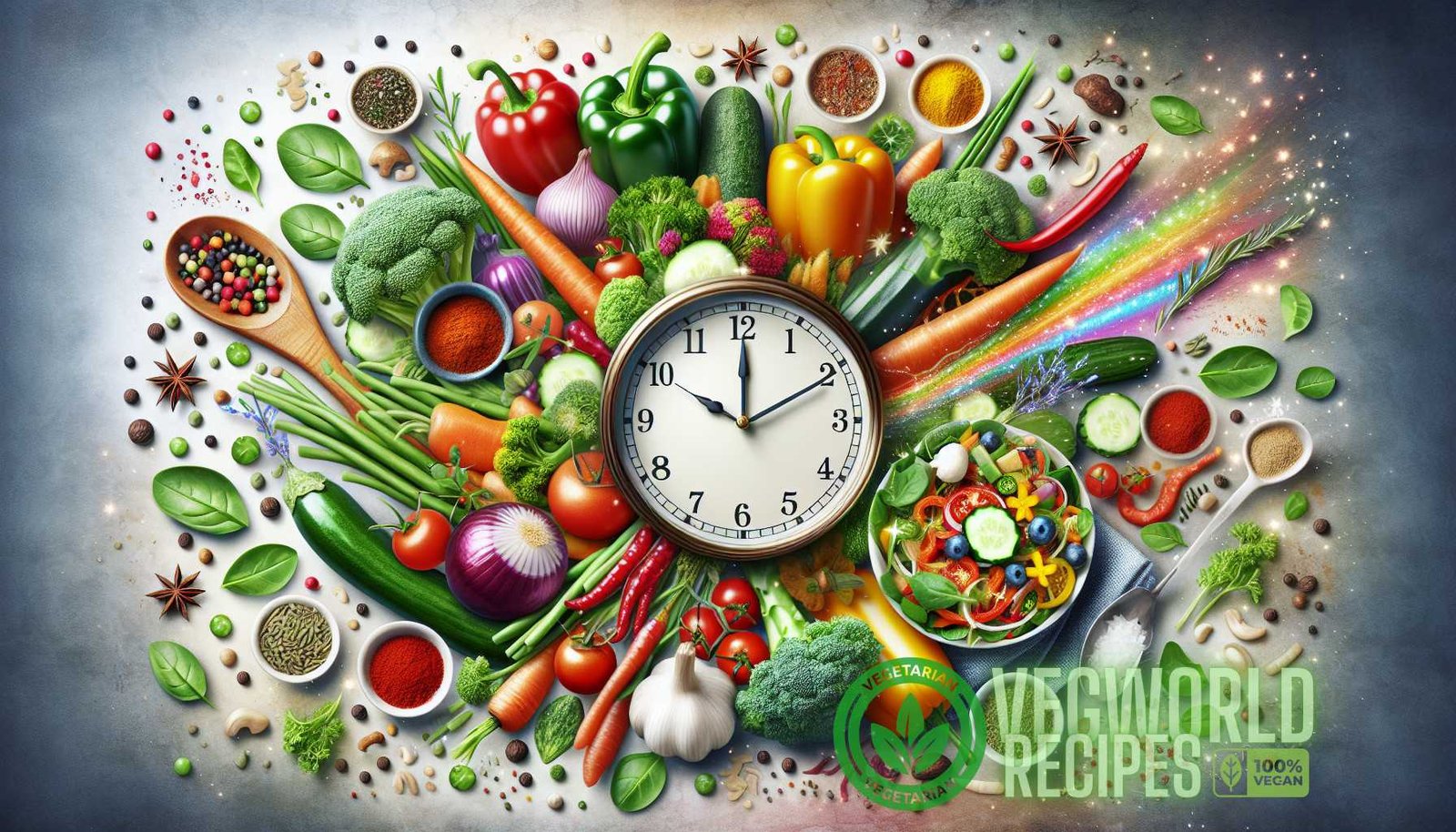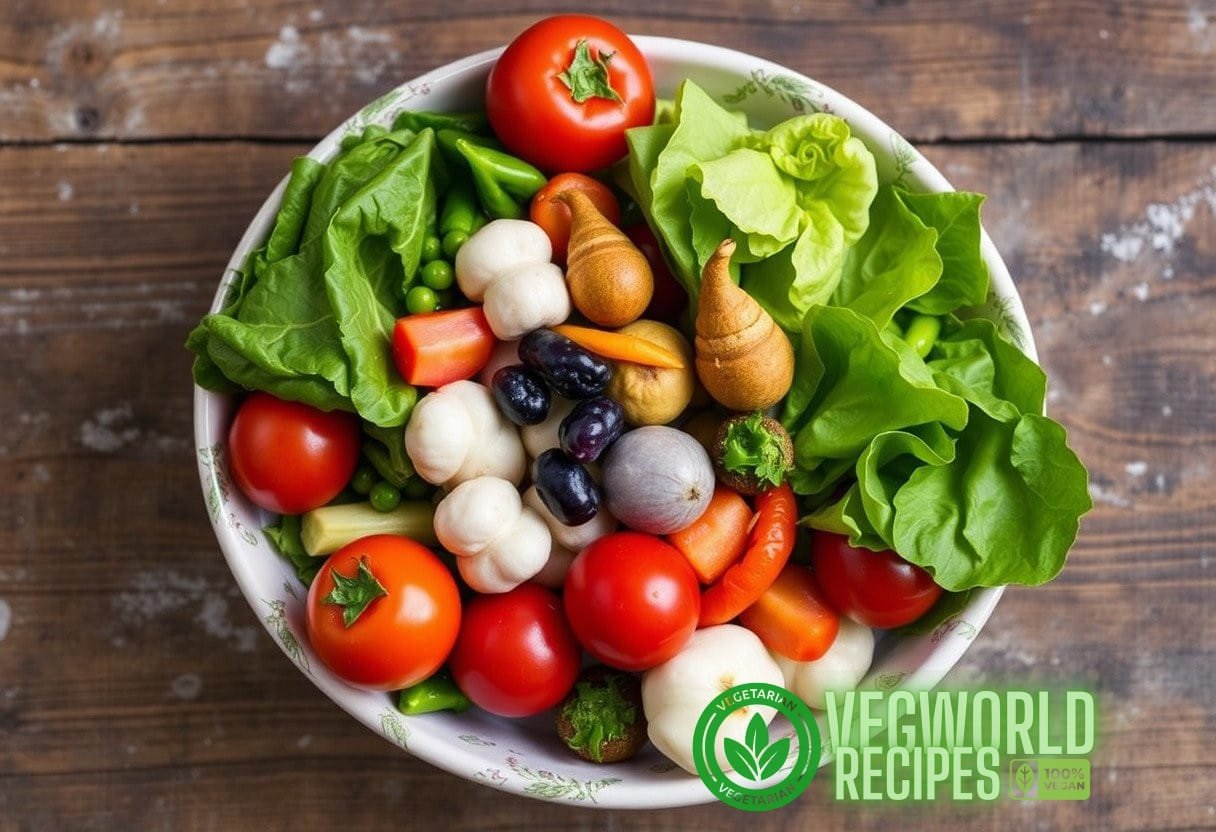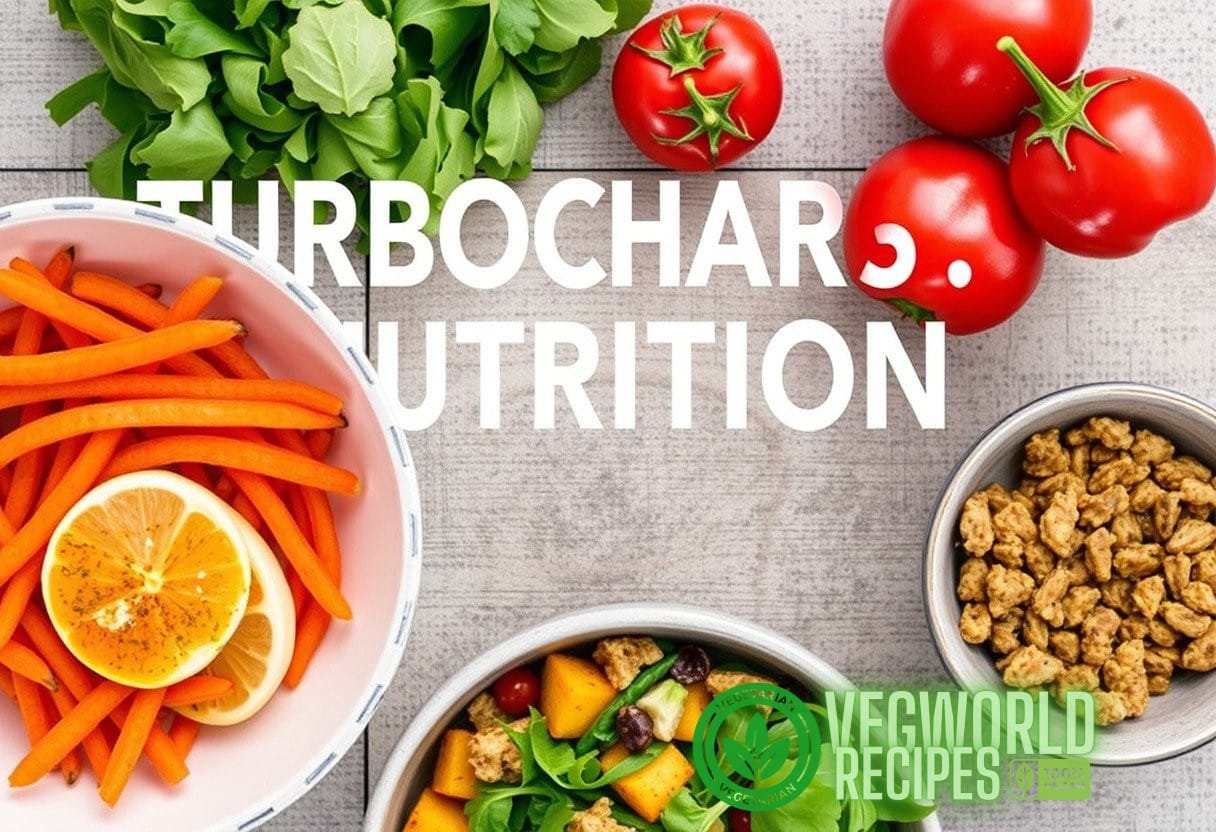Are you searching for a way to make your vegetarian meals more nutritious while also saving time in the kitchen? Look no further! In this article, we will explore the concept of micronutrient density and how it can be applied to create time-saving veggie power meals that are both delicious and packed with essential nutrients. Whether you’re a busy professional, a parent on the go, or simply someone who values efficiency in the kitchen, these tips and tricks will help you optimize your vegetarian meals for maximum nutrition and minimum fuss.
Why is Micronutrient Density Important?
Micronutrients are the vitamins and minerals that our bodies need in small quantities for optimal health and functioning. They play a crucial role in supporting various bodily processes, such as metabolism, immune function, and cell production. Consuming a diet rich in micronutrients is essential for overall well-being and can help prevent nutrient deficiencies and associated health problems.
Micronutrient density refers to the amount of vitamins and minerals present per calorie in a given food or meal. By focusing on foods that are high in micronutrients but low in calories, we can ensure that we are getting the most nutritional bang for our buck. This is particularly important for vegetarians, as certain nutrients, such as iron, zinc, and vitamin B12, may be less readily available in plant-based diets. By incorporating a wide variety of nutrient-dense plant foods into our meals, we can meet our nutritional needs without the need for excessive food consumption.
Let’s take a closer look at how we can unlock the secrets of micronutrient density in time-saving vegetarian meals.
1. Include a Rainbow of Fruits and Vegetables
One of the easiest ways to increase the micronutrient density of your meals is to incorporate a wide variety of colorful fruits and vegetables. Different colors in fruits and vegetables represent different micronutrients, so by consuming a rainbow of produce, you can ensure that you are receiving a broad spectrum of essential vitamins and minerals.
For example, red fruits and vegetables like tomatoes and watermelon are rich in lycopene, a powerful antioxidant that may help protect against certain types of cancer. Orange fruits and vegetables, such as sweet potatoes and carrots, are high in beta-carotene, which is converted to vitamin A in the body and essential for healthy vision and immune function. Green leafy vegetables, like spinach and kale, are packed with nutrients such as vitamins K, C, and E, as well as iron and calcium.
By including a variety of fruits and vegetables in your vegetarian meals, you can boost the micronutrient content without adding excessive calories. Aim to fill at least half of your plate with colorful produce, and experiment with different cooking techniques, such as roasting, steaming, or grilling, to add flavor and variety to your meals.
2. Focus on Plant-Based Protein Sources
Protein is an essential nutrient for muscle growth, repair, and maintenance. While many people associate protein with animal products, there are plenty of plant-based protein sources that can provide adequate protein for vegetarians.
Legumes, such as lentils, chickpeas, and black beans, are excellent sources of plant-based protein, as well as fiber, iron, and other important nutrients. Including legumes in your vegetarian meals can significantly increase their protein content and enhance their overall nutritional profile. Try adding cooked lentils to a salad, making a chickpea curry, or incorporating black beans into a veggie burger.
Other plant-based protein sources include tofu, tempeh, quinoa, and edamame. These ingredients are not only rich in protein but also versatile and quick to prepare, making them ideal for time-saving meals. Experiment with different cooking methods and flavor combinations to keep your meals interesting and satisfying.
3. Be Mindful of Healthy Fats
While it’s essential to be mindful of the quantity of fats in your diet, it’s equally important to focus on consuming healthy fats. Healthy fats, such as those found in nuts, seeds, avocados, and olive oil, are rich in essential fatty acids that are crucial for brain health, hormone production, and overall well-being.

Incorporating healthy fats into your vegetarian meals can increase the satiety factor, making you feel fuller for longer and reducing the urge to snack on unhealthy, calorie-dense foods. For example, adding a handful of almonds to your salad, topping your avocado toast with flaxseeds, or drizzling olive oil over roasted vegetables can add flavor, texture, and important nutrients to your meals.
4. Don’t Forget About Whole Grains
Whole grains are an excellent source of complex carbohydrates, fiber, and essential vitamins and minerals. Including whole grains in your vegetarian meals can provide sustained energy, support digestion, and enhance the micronutrient density.
Quinoa, brown rice, whole wheat pasta, and oats are just a few examples of whole grains that can be incorporated into time-saving vegetarian meals. Experiment with different grains and cooking methods to find your favorite combinations. For example, make a simple quinoa salad by tossing cooked quinoa with your favorite vegetables and a light vinaigrette. Or, prepare a nourishing bowl of oatmeal by topping cooked oats with fresh fruits, nuts, and a sprinkle of cinnamon.
5. Maximize Nutrient Absorption with Smart Pairings
Certain nutrients are more easily absorbed by the body when consumed alongside other specific nutrients. By being mindful of these nutrient pairings, you can optimize the absorption of essential vitamins and minerals and maximize the nutritional value of your vegetarian meals.
For example, pairing vitamin C-rich foods, such as citrus fruits or bell peppers, with plant-based sources of iron, such as spinach or lentils, can enhance iron absorption. Including healthy fats, like avocado or olive oil, in your salads or vegetable dishes can increase the absorption of fat-soluble vitamins, such as vitamin A and E.
6. Plan and Prep in Advance
One of the most effective strategies for saving time in the kitchen is to plan and prep your meals in advance. Spending a little extra time on the weekends or on a designated meal prep day can significantly reduce the amount of time and effort required to prepare healthy, time-saving veggie power meals throughout the week.
Start by planning your meals for the week, taking into account your schedule and dietary preferences. Make a shopping list and ensure that you have all the ingredients you need on hand. Consider batch cooking staple ingredients, such as grains, legumes, or roasted vegetables, so that they can be easily incorporated into different meals. Portion out your meals into individual containers, so you have them ready to grab and go when needed.
By dedicating a few hours each week to meal planning and preparation, you can set yourself up for success and ensure that you always have nutritious, time-saving vegetarian meals at your fingertips.
In Conclusion
By focusing on the principles of micronutrient density, you can unlock the secrets of time-saving veggie power meals that are both nourishing and delicious. Incorporating a variety of colorful fruits and vegetables, plant-based protein sources, healthy fats, and whole grains into your vegetarian meals can ensure that you are meeting your nutritional needs without sacrificing taste or convenience.
Remember to be mindful of nutrient pairings, plan and prep your meals in advance, and experiment with different flavors and cooking techniques to keep your meals interesting and enjoyable. With a little creativity and a commitment to efficient nutrition, you can optimize your vegetarian meals and fuel your body with the micronutrients it needs to thrive.
———- Link: Wikipedia – Micronutrients – https://en.wikipedia.org/wiki/Micronutrients Internal links: – An article available at https://vegworldrecipes.fun/quick-meals/vegetarian-lunch-hacks/ discussing tips and tricks for quick and nutritious vegetarian lunches. – An article available at https://vegworldrecipes.fun/quick-meals/10-minute-vegetarian-meals-quick-and-delicious-veggie-recipes-for-busy-weeknights/ featuring a selection of 10-minute vegetarian meals that are perfect for busy weeknights.


